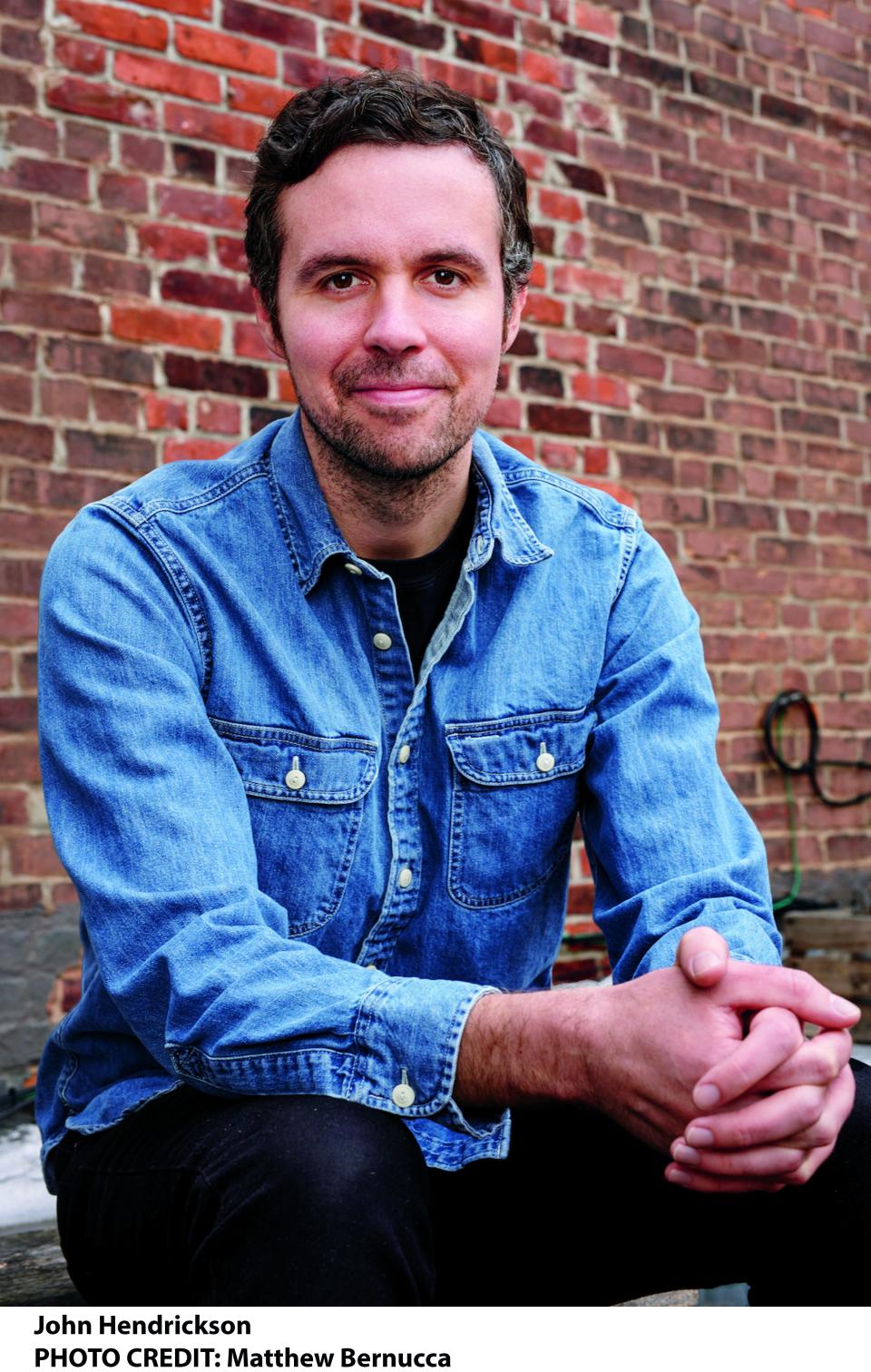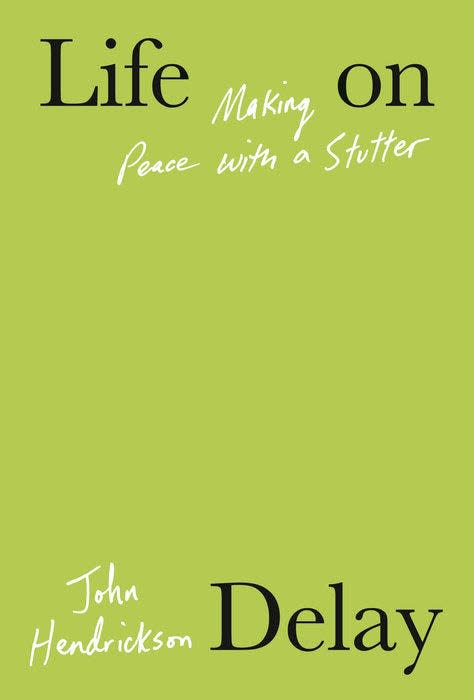John Hendrickson interviewed Joe Biden about his stutter. Now he's written a book about his own.
John Hendrickson stutters.
It's a fact you glean by reading the title of his new memoir "Life on Delay: Making Peace With a Stutter" (Knopf, 272 pp., out now). But it's also something that took time to seriously sink in for the senior editor at The Atlantic. He wrote about his stutter – and then-presidential candidate Joe Biden's – in the magazine's January/February 2020 issue.
For Hendrickson, the book-writing process meant ravenously reflecting on his own life, including his early days in speech therapy, his journalism career and all the familial, platonic and romantic relationships in his life – not to mention interviewing many fellow stutterers.
"They all changed my life in individual ways," Hendrickson says over the phone. "The way I wrote the book was trying to let certain people who stutter help me illuminate and understand individual topics, from relationships to substance abuse, depression to creativity and art."
This interview has been edited and condensed.
Elsewhere in books: Physical attacks, drug use, Diana's death and more bombshells from Prince Harry's 'Spare'

Question: You dig into yourself a lot in this book. I'm wondering what were some of the most difficult parts to write and did they surprise you?
Answer: The entire book was difficult to write but it was also cathartic. I spent years just digging back through every chapter of my life from preschool and kindergarten up through present day looking at old journals, old homework assignments from elementary school, e-mails, pictures, everything and trying to put myself back in that headspace. But beyond my own memories, what I found to be most instructive here was actually going back and interviewing people from my past. People like my kindergarten teacher, my second grade teacher, my sixth grade girlfriend (laughs). When I reached out to them, I had no idea if they would remember me. I had no idea if they have any recollection or opinion of the way I talked. But what they all said totally amazed me. They had these extremely vivid anecdotes and crystal memories that filled in the whole picture for me.
Your college professor told you that you write to cleanse your memory. I'm wondering if your memory feels cleansed now after writing this, and if therapy helped with that as well.
Yes to both. Writing has also always been a balm and a release for me for as long as I could remember. But it wasn't until I was about 30 that I buckled down and finally went to psychotherapy and I began exploring decades of things that I had repressed. Growing up, I told myself that everything bad related to my stutter could just roll off my back and I had this rhino skin. What I learned was really, I was just pushing everything deep, deep down inside me, pit in my stomach, carrying it around. As I kept getting older, that weight grew heavier and heavier to the point that I felt like I was almost potentially going to have a nervous breakdown. Going to therapy changed my life in immeasurable ways and it helped me begin to release some of that weight.
'I am not ashamed': Disability advocates, experts implore you to stop saying 'special needs'
Being a journalist and writing about yourself can be really weird and difficult. Do you have a preference for writing about something that you're much further removed from versus writing something personal?
It all gets back to the No. 1 rule of writing, which is just "write what you know." And if you devote years to becoming an expert on a topic – it could be any topic – then, you know it and you can write about it at length and competently and in-depth. But we also always have that about ourselves in a way because what do we know better than our own life? But at the same time, we only have our own perspective and our own memories. Reading David Carr's memoir, "The Night of the Gun," in which he goes back and interviews people from his past, that truly inspired me because people remember things differently.
Opinion: Like Brayden Harrington, 13, I stutter. It took me years before I was as brave as him.

You do a great job of showing your disfluency in the text. We see the long pauses, the trouble starting words, the blocks. What was the balance like, in wanting to illustrate that for the reader while also writing without that?
That was top of mind, throughout the entire process. I tried to find the sweet spot between presenting disfluency on the page while also keeping the reader engaged, and keeping the reader moving forward through the chapters because looking at it can be jarring. It's a bunch of consonants, a bunch of ellipses, whitespace. That's not the way that we're used to reading books. So I tried to use that tool, just occasionally, and always write with the reader in mind to make sure that they weren't going to ditch the book. My overarching goal here is to present the substance of what people are saying, and I think, yes, make certain hard choices when doing that.
I was rereading your Atlantic piece. It's like how you're including some of Biden's stuttering, his "um"s, things like that, where in traditional journalism, you erase those.
At the end of the day, you want people to read the book, and you want it to resonate. This is a very interesting tension within the disability community, of representation and of authenticity, while trying to make a piece of work, for lack of a better word, accessible to mass audiences.
You also write that you wouldn't recognize yourself if you didn't stutter. Do you think that society is catching up to the idea that not everybody needs to be fixed?
Yes. The disability pride movement has existed for decades. But it's really caught fire in recent years, thanks to people like Alice Wong, who runs Disability Visibility. We're seeing now in documentaries and writing and other works a more nuanced, layered portrait of people with disabilities. Because for far too long, a person with disabilities has been defined purely by that one thing, and especially in fictionalized works or in movies or television, they rarely are presented with interior lives. My goal with this book was to tell a life story through the prism of stuttering. But you don't have to be a person who stutters, and you don't have to be a person with a disability to see yourself in this book.
'I am not my blindness': What the blind community wishes you knew
This article originally appeared on USA TODAY: 'Life on Delay': John Hendrickson on his new memoir on stuttering

